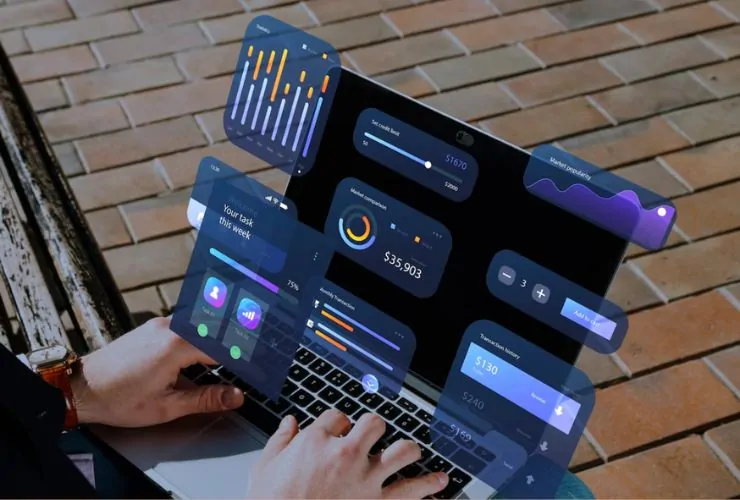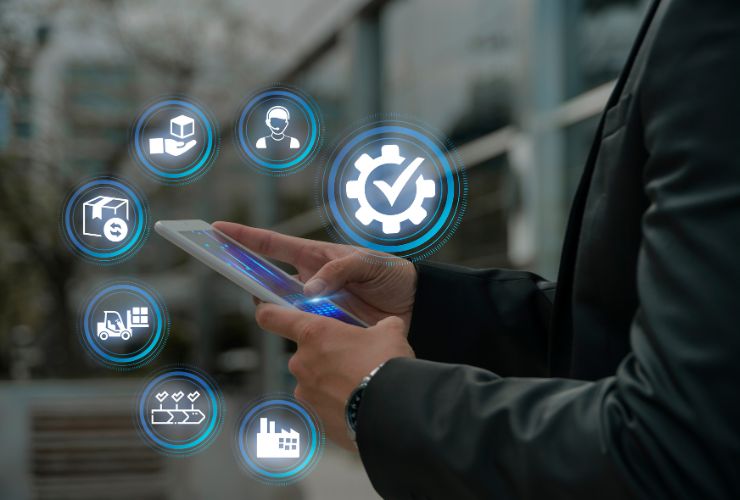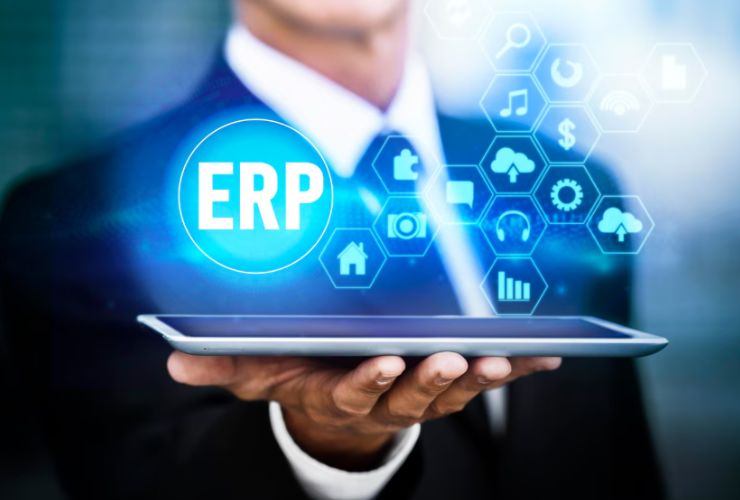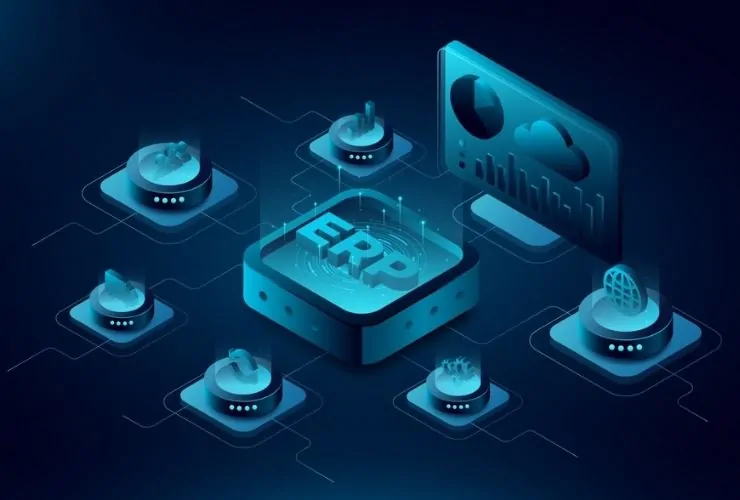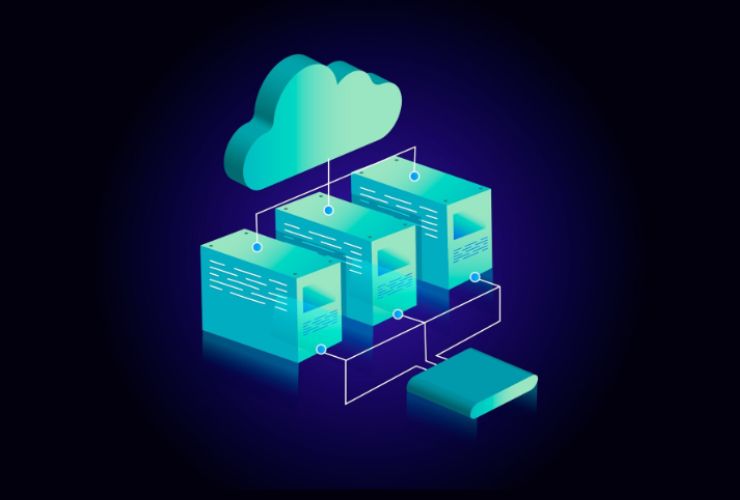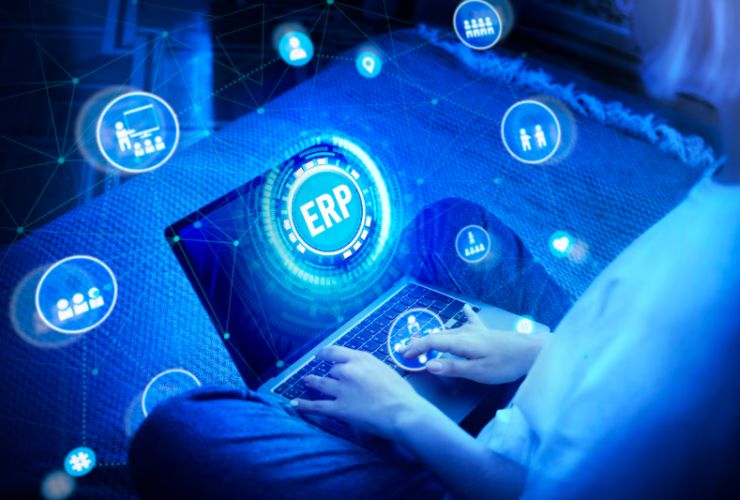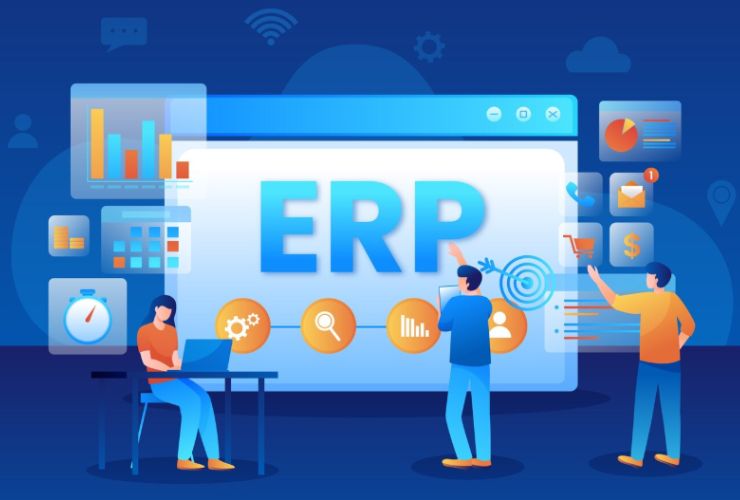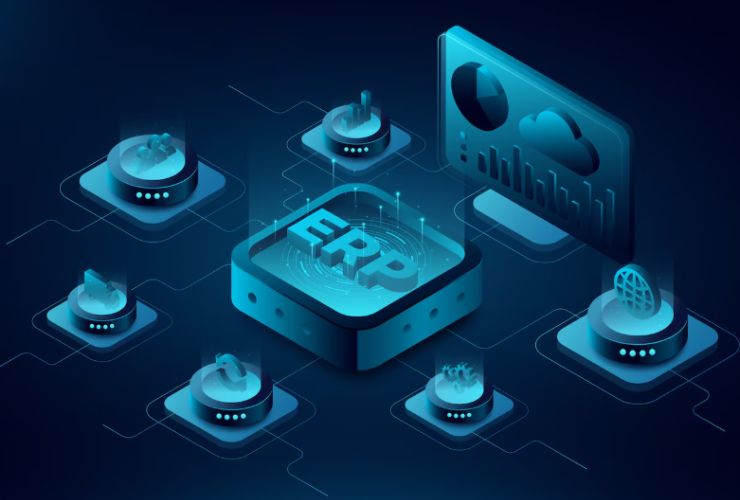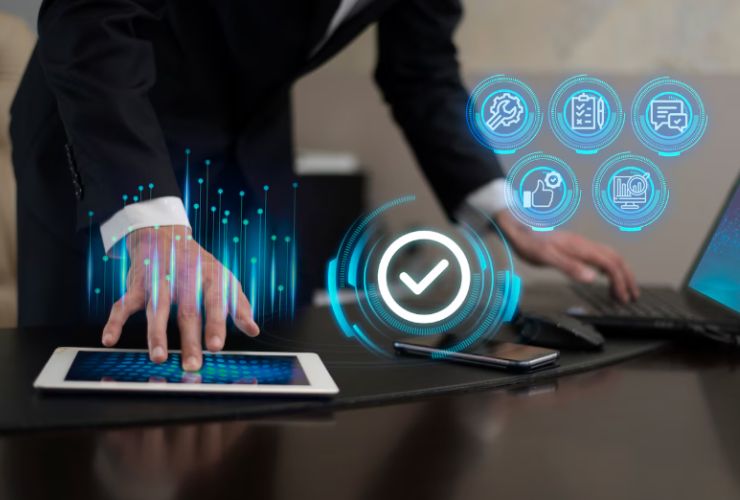As businesses adopt more connected devices and smart technologies, the Internet of Things (IoT) is transforming how companies gather, share, and use data. When paired with a modern ERP system, IoT can unlock real-time insights and automate critical processes — driving efficiency, visibility, and smarter decision-making across the entire organization.
How IoT Adds Value to ERP Integrations
Traditionally, ERP systems consolidate data from core business areas like finance, inventory, production, and supply chain. However, without IoT, much of this data still relies on manual input, spreadsheets, or delayed reporting. This creates gaps that slow down decision-making and open the door to errors.
IoT integrated systems provide a powerful way for physical devices (whether sensors, smart equipment, or interconnected machines) to provide real-time data to the ERP system. The ability to automatically feed real-time data to the ERP creates a level of situational awareness for the business. Business processes and systems can be responsive to changes in conditions, allowing for increasing productivity.
So, how does ERP integration with IoT provide value?
Continuous Monitoring: Businesses can continuously monitor equipment performance levels, inventory levels, energy consumption, or production output, for example, allowing a factory to monitor anomalies and address problems before failure occurs.
Predictive Maintenance: IoT sensors will track wear patterns or irregular responses to conditions, which can trigger communication to the ERP so that resources can be scheduled for maintenance before a costly failure occurs with IoT; …use sensors in real-time, on active equipment, can save money and downtime.
Increased Supply Chain Transparency: Connected vehicles and smart logistics capability can automatically update the ERP with live shipping, delivery status, and inventory in the warehouse, which can help prevent bottlenecks and delays, and improve visibility for customers through accurate delivery estimates.
Better automation: IoT devices can trigger automated workflows in the ERP, such as reordering materials based on inventory levels or making changes to production schedules based on demand.
Better accuracy with data: Automation data capture can reduce human error and provide the entire organization with the most accurate and up-to-date information in each department.
A Real-World Example
Picture a smart warehouse. A company has IoT enabled shelves and sensors, so when the stock levels are low, the sensors automatically update the ERP, which in turn creates a PO to replenish the inventory with no human user involved. The end result is that there are fewer stockouts, less costly inventory costs, and happier customers.
Key Industries Benefitting from IoT with ERP Integrations
Manufacturing: To monitor production lines, improve product quality, reduce waste, and optimize resource utilization with IoT-ERP integrations, manufacturer productivity will improve, resulting in more profitable operations.
Logistics & Warehousing: Equipped with tracking capabilities on their shipments, a predictive outlook on fleet performance, automated warehouse management, and the ability to accelerate the fulfilment process with IoT-ERP integrations, corporations experience efficiencies and expedite fulfilment.
Healthcare: Hospitals and clinics can monitor equipment availability and performance of medical equipment in addition to efficient asset management and compliance with safety and operational requirements with IoT-ERP integration.
Retail: Retailers are utilizing smart shelving, connected POS (point of sale), or other forms of IoT connectivity to give them insight to what is on their shelves in real time to make smarter decisions, allow them to forecast demand, while building preferred customer relationships and experiences.
Energy & Utilities: IoT sensors are aligned with ERP systems that give the organizations insight to monitor power usage and utilization in addition to predictive servicing of equipment and allocating resource response optimally.
The Importance of IoT-ERP Integration for Today’s Businesses
In an era when data is a strategic asset, an organization can be highly competitive by integrating IoT with ERP, and there are some seriously potential benefits such as:
- Agility: Provides speed, enhances data-driven decisions.
- Reduced costs: Reduces manual labor, eliminates errors, unexpected downtimes.
- Resource Optimization: Better management of assets, lower asset maintenance costs.
- Customer Experience: Quicker more accurate customer service delivery and transparency.
- Sustainable Growth: Provide organizations with data to plan, forecast and respond to market changes quickly
Challenges to keep in mind
IoT-ERP integration does provide some great reward but also some challenges:
- Data Security: Increased connected devices means increased potential points of entry for cyber threats. Strong Security is imperative.
- Data overload: Organizations require smart data management and analysis to effectively interpret a huge volume of IoT data streams.
- Integration complexity: The integration of IoT devices to legacy ERP systems may require custom solutions and seasoned integration partners.
Get Help from the Experts in IoT-Driven ERP Integration
Linking IoT to your ERP solution is not about the technology its about building a more intelligent connected business. The ideal integration partner will ensure that not only are they with the organization for planning and implementation but ongoing post-implementation support.
At Empirical Edge, we help businesses of all sizes integrate IoT devices with modern ERP systems to unlock real-time insights, streamline operations, and drive growth. Our tailored ERP Integration Services ensure your connected ecosystem works seamlessly and securely — so you can focus on what you do best.
Ready to modernize your ERP with IoT?
Empirical Edge helps businesses integrate intelligent technologies that improve visibility, automate workflows, and drive smarter decision-making.
Frequently Asked Questions
IoT integration connects smart devices and sensors to ERP platforms, enabling real-time data collection, automation, and improved operational visibility.
IoT sensors provide real-time operational data, allowing businesses to detect issues quickly, reduce downtime, and make data-driven decisions.
Yes. Predictive maintenance powered by IoT analyzes usage patterns to prevent unexpected failures and costly repairs.
Integrating IoT with ERP enables real-time tracking of inventory and shipments, helping organizations respond faster to disruptions and demand changes.
Absolutely. The combination creates a feedback loop of real-time data and analysis that optimizes operations end-to-end and increases agility.

